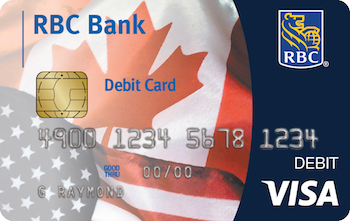Published June 3, 2021 • 7 Min Read
So you’re heading south of the border! Whether it’s for work, family, school, retirement or something else entirely, picking up and moving to the U.S. from Canada is not a small event. While Canada and the U.S. share a border, a language and a love of sports, there are several differences between the two countries — a fact that’s all the more amplified when you actually start living in the States.
9 things you’ll want to know before you make the move to the U.S.
1. Departure Tax – Know What it Applies to
The first thing every Canadian moving out of the country — ceasing Canadian residency for tax purposes — needs to know is that the Canadian government can charge a departure tax (also known as a deemed disposition tax) on accrued gains on many of your assets.
Some assets are completely exempt — you pay Canadian tax when you actually sell them, receive distributions or exercise them — real estate, for example, as well as when you receive distributions from registered accounts (i.e., your RRSPs and RRIFs) or exercise your employee stock options. On the other hand, real estate outside of Canada, shares of companies, and non-registered investments such as stocks and mutual funds are subject to departure tax. Departure tax will not apply if you maintain Canadian tax residency while you are abroad.
It’s a good idea to meet with a tax advisor well ahead of your move so you can work together to consider your residency status in Canada and strategies to either reduce or defer your tax obligations.
If you will cease Canadian residency, managing the departure tax is one area where it’s particularly important to start planning early, so you and your advisor have enough time to put together a plan for your assets.
2. What to Do About Your Home
Depending on the reason for your move to the U.S., the decision to sell or keep your home in Canada might be an easy one. For example, if you won’t be returning to Canada any time soon, then selling your home likely makes good sense. But if you’ve got a 1-2 year U.S. contract and plan to return, keeping your Canadian home may be a better long-term option.
-
Maintaining a home in Canada, which is a significant tie to Canada, may indicate to the government that you are still a Canadian resident, which will require you to continue to pay Canadian tax on your worldwide income. And if you’re physically living and working in the U.S. at the same time, you may also have a U.S. income tax obligation. The Canada — U.S. Tax Treaty may offer relief from having to pay taxes in both countries.
-
By selling your home, you will sever a tie that may indicate to the government you no longer intend to be a resident of Canada. As a non-resident of Canada, you will be subject to tax in Canada only on income from within Canada.
If you’re thinking about keeping your home and renting it out while you’re gone, there are some tax implications potentially in both countries beyond the departure tax to consider. Once again, it’s important to talk to a financial advisor or tax professional about how this decision could affect your finances. Either way, it’s best to make your decision before you leave.
3. Finding a Place to Live
As you look ahead to move to the U.S., one of your first decisions will be whether you want to buy or rent. Many Canadians choose to rent first, to get a feel for their new city before buying.
Others decide to buy right away. The great news is that it’s not difficult to purchase a home as a Canadian in the U.S. Finding a U.S. bank that works with Canadians — and uses your Canadian credit history — is key to financing your property.

Making a Move to the U.S.?
We’re with you. Set up your U.S. banking and credit card before you move to make life simpler.
4. Getting Your Paperwork Together
Getting the ball rolling on your move starts with organizing all the necessary documentation the U.S. government needs to let you in. Since you’ll require a particular type of visa depending on the purpose of your move, be sure to review your individual visa requirements with the U.S. Department of State.
In general, you will need to have:
-
Passports for all family members
-
Your approved visa
-
Copy of your I94 document (U.S. customs officials will provide this form when you cross the border)
-
Completed HS7 form for every vehicle you’re importing
5. Setting up Your Banking and Credit
Since you may only be able to pay your U.S. bills in U.S. dollars, one of the first things you’ll need to set up is a U.S. bank account — even before you leave Canada. You’ll need to have the ability to easily move money back and across the border — being able to do this online, and the costs associated with it, are critical factors to consider as you set up your U.S. banking.
While you’re setting up your U.S. bank account, it’s a smart idea to get a U.S.-based credit card as well. That way you can avoid foreign transaction fees when paying for U.S. purchases. A U.S. credit card will also help you build a credit rating, which will be important if you’re planning to stay in the U.S. for a while. Look for a U.S. credit card that comes with travel benefits such as travel accidents, trip cancellations, auto rental insurance and rewards.
6. Organizing Your Investments
Dealing with your investments prior to your move from Canada to the U.S. may get a little complicated. When you’ve made the decision to move, work with an advisor who is licensed to work with both Canadian and U.S. residents.
A cross-border advisor who can work in both Canadian and U.S. currencies will allow you to take advantage of favourable exchange rates and build up your portfolio in the currency of your choice.
7. Finding Health Insurance
You’ll want to keep an eye on any changes made to healthcare policies as you plan your move. For more information about the U.S. healthcare marketplace and current requirements, visit Healthcare.gov.
If you’re a first-time visa holder, it’s important to buy a visitor health insurance plan before leaving Canada in case you need medical treatment before your U.S. health plan takes effect.
While this isn’t an exhaustive list, these are some key things you’ll want to consider as you plan your move to the U.S. Watch out for the other posts in this series for more information about moving to, and living in the U.S. as a Canadian.
8. Signing Your Kids Up For School
If you have kids, a significant factor that drives where you choose to live is the proximity to good schools. You can also learn about the ethnic diversity that makes up a school, teacher experience and student-to-teacher ratios. Greatschools.org reviews schools in the areas you’re considering living.
9. Bringing Along Fido or Fluffy
If you have a dog or cat over 3 months of age, you’ll need to produce proof of rabies vaccinations and a certificate from your vet stating that your animal is in good health.

Brought to you by RBC Bank™ U.S.
Cross-border banking for Canadians.
RBC Bank is RBC Bank (Georgia), National Association (“RBC Bank”), a wholly owned U.S. banking subsidiary of Royal Bank of Canada, and is a member of the U.S. Federal Deposit Insurance Corporation (“FDIC”). U.S. deposit accounts are insured by the FDIC up to the maximum amount permissible by law. U.S. banking products and services are offered and provided by RBC Bank. Canadian banking products and services are offered and provided by Royal Bank of Canada. U.S. deposit accounts are not insured by the Canada Deposit Insurance Corporation (“CDIC”).
This article is intended as general information only and is not to be relied upon as constituting legal, financial or other professional advice. A professional advisor should be consulted regarding your specific situation. Information presented is believed to be factual and up-to-date but we do not guarantee its accuracy and it should not be regarded as a complete analysis of the subjects discussed. All expressions of opinion reflect the judgment of the authors as of the date of publication and are subject to change. No endorsement of any third parties or their advice, opinions, information, products or services is expressly given or implied by Royal Bank of Canada or any of its affiliates.
Share This Article






